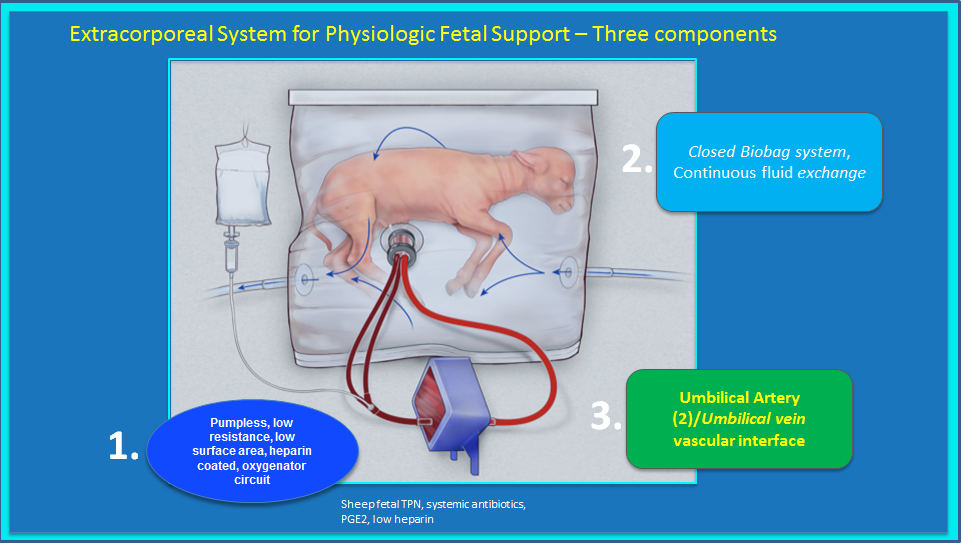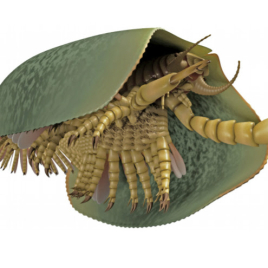
The extracorporeal system for physiologic fetal support for a premature lamb fetus (Image by The Children’s Hospital of Philadelphia)
The development of premature lambs was supported in an external artificial womb environment for four weeks – the longest animal survival outside of the uterus recorded to date. Researchers have constructed an extra-uterine environment which comprises a polyethylene film bag with an oxygen circuit via an umbilical cord interface, which mimics the environment inside the sheep’s uterus. The lamb’s development in the study was biologically equivalent to the 23–24 week gestation of a premature human infant. Lambs maintained a stable blood gas/fetal circulation over the period of the study, and showed normal development according to gestation age. This is the first study to achieve long-term survival and proper development of an animal fetus outside the womb. However, there are many considerations to be made before the success of the study can be applied to extra-uterine incubation of premature human infants.
Authors:
Emily A. Partridge, Marcus G. Davey, Matthew A. Hornick, Patrick E. McGovern, Ali Y. Mejaddam, Jesse D. Vrecenak, Carmen Mesas-Burgos, Aliza Olive, Robert C. Caskey, Theodore R. Weiland, Jiancheng Han, Alexander J. Schupper, James T. Connelly, Kevin C. Dysart, Jack Rychik, Holly L. Hedrick, William H. Peranteau & Alan W. Flake
Corresponding author:
Alan Flake, contact via Ashley Moore, Children’s Hospital of Philadelphia, Email: moorea1@email.chop.edu
Original paper published in Nature Communications on April 25, 2017.

